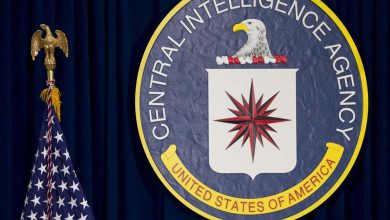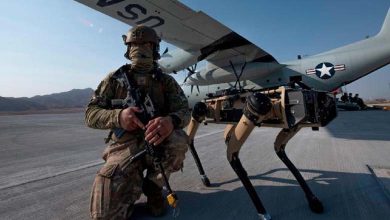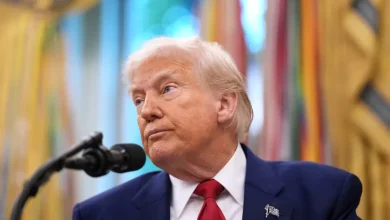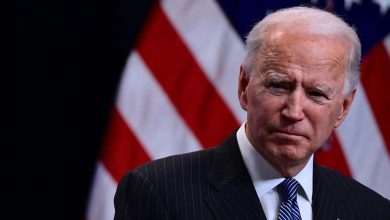The designation of Robert Malley between supports and critics

On Friday, the White House confirmed that Robert Malley, who is a former top Iran adviser in President Barack Obama’s administration, has been chosen as US envoy to Iran. But, his nomination raised many reactions.
It should indicate that Malley worked on the Obama team that negotiated the Iran nuclear deal, known as the Joint Comprehensive Plan of Action (JCPOA), which is a deal that the former President Donald Trump abandoned in 2018, and imposing sanctions on Tehran as part of his maximum pressure campaign.
Recently, Malley worked as president and CEO of the Washington-based International Crisis Group, which is a non-profit organization concentrated on global conflict.
The Jewish Insider reported on Jan. 20 that Malley was being educated for a position as special envoy on Iran, which makes a violent debate online between critics and supporters of Malley.
The pro-Tehran personalities and proponents of the JCPOA were welcomed the Malley’s arrival, while Iranian dissidents and rights activists, as well as some Republicans, have expressed concern over the nomination.
Malley’s critics declares that he is too lenient with the Iranian regime and worry he would overlook Tehran’s human rights abuses in order to reach agreements, whereas his supporters states that he is the ideal choice for diplomatic re-engagement with Iran.
Support for Malley
Hesamoddin Ashena, a senior advisor to Iranian President Hassan Rouhani, welcomed reports that US President Joe Biden was considering Malley as US Iran envoy, tweeting on Jan. 22: “Robert Malley’s possible appointment carries a clear message about an efficient approach to resolving the conflict quickly and effectively.”
Furthermore, in an article published on Jan. 22, Iranian Revolutionary Guards-affiliated news agency Tasnim called Malley’s critics as anti-Iranian extremists. Reza Nasri, who is a Tehran-based foreign policy analyst and a supporter of the nuclear deal, also described Malley’s critics as anti-Iranian, and said on a tweet on Jan. 22: The appointment of Robert Malley [as Iran envoy] seems to create a good atmosphere for diplomacy and a kind of detente.
On Jan. 28, hundreds of supporters of the JCPOA who opposed the previous administration’s “maximum pressure” policy issued a statement of support for Malley.
The statement, signed by former US officials, academics and Iranian-Americans, said: Those who accuse Malley of sympathy for the Islamic Republic have no grasp of – or no interest in – true diplomacy, which requires a level-headed understanding of the other side’s motivations and knowledge that can only be acquired through dialogue. They alleged that Malley is the target of a coordinated smear campaign by supporters of Trump’s failed Iran policy.
Malley’s critics
In fact, critics of Malley debate that his designation signals to Tehran that Washington’s main priority is to rejoin the JCPOA, and that matters such as Iran’s human rights abuses and regional activities are less of a priority for the new administration. A number of Iranian activists and former prisoners in Iran wrote on Jan. 20 to Secretary of State Antony Blinken, demanding him to not appointing Malley as Iran envoy.
The letter contained: Malley’s track record goes counter to an administration that has pledged to promote human rights and democracy…Malley’s appointment would send a chilling signal to the dictatorship in Iran that the United States is solely focused on re-entering the Iran nuclear deal and ignoring its regional terror and domestic crimes against humanity.
The letter added: During his tenure in the Obama administration, Mr. Malley did not engage Iranian human rights activists nor did he seem at all interested in pursuing a dialogue or consultation. Instead, he focused on consulting former officials of the Islamic Republic.
Moreover, Wang Xiyue, who is a Chinese-American researcher, he was detained in Iran from 2016 to 2019 on espionage accusations, is one of the letter’s signatories. He said on Twitter: During my imprisonment Mr. Malley was a senior White House official. He played no positive role in facilitating my release, a view shared by present and past hostages and their families. If he is appointed, it’d suggest releasing US hostages from Iran won’t be a priority.
Xiyue also said: More importantly, Malley’s appointment will convey to Tehran that Sec. Blinken’s principled remarks on strengthening the JCPOA, working with regional partners, and standing up for human rights in Iran were merely empty words.
One Iranian dissident said endorsements for Malley from within Iran are cause for concern.
Vahid Yucesoy, who is a researcher on Iran and Turkey at the University of Montreal, said on Twitter, referring to Ashena’s tweet on Malley: When higher echelons of power in Iran approve of Malley’s appointment, there’s indeed reason to be worried about.
Yucesoy added: The Biden administration had promised to prioritize human rights in its Middle East policy. Malley’s appointment means appeasement of dictators, not human rights.












